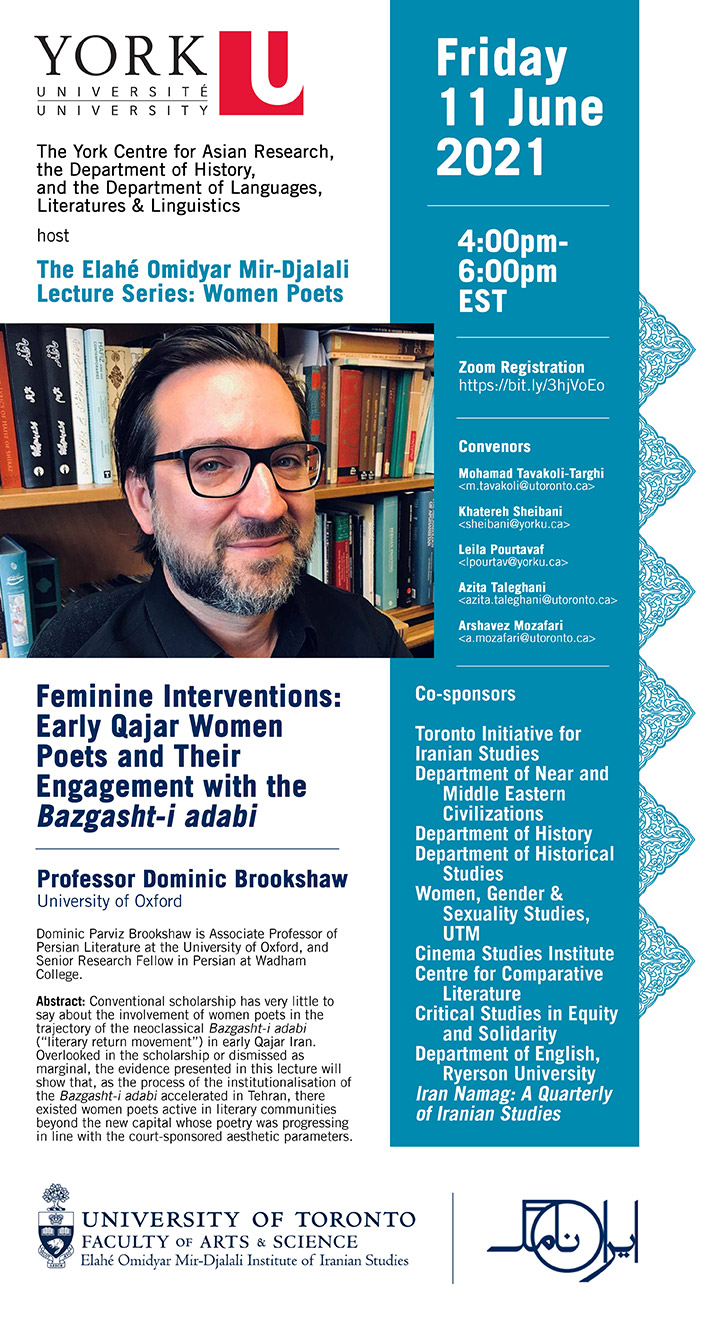

Dominic Parviz Brookshaw is Associate Professor of Persian Literature at the University of Oxford, and Senior Research Fellow in Persian at Wadham College. Dominic currently serves on the Editorial Board of Middle Eastern Literatures and, from 2004 to 2014, he was Assistant Editor for Iranian Studies. He is a former member of both the Board of the International Society for Iranian Studies, and the Governing Council of the British Institute of Persian Studies. His latest book, Hafiz and His Contemporaries: Poetry, Performance, and Patronage in Fourteenth-century Iran (Bloomsbury, 2019), was awarded the 2020 Saidi-Sirjani Book Award. His current book project is a study of early Qajar poetry in which, for the first time in any scholarly monograph, the poetry of women, provincial litterateurs, and members of ethno-linguistic and heterodox religious communities will be read alongside that produced by elite men to unpack the gender and centre-periphery dynamics at play in the Bazgasht-i adabi, Iran’s last truly indigenous literary movement.
Conventional scholarship has very little to say about the involvement of women poets in the trajectory of the neoclassical Bazgasht-i adabi (“literary return movement”) in early Qajar Iran. Overlooked in the scholarship or dismissed as marginal, the evidence presented in this lecture will show that, as the process of the institutionalisation of the Bazgasht-i adabi accelerated in Tehran, there existed women poets active in literary communities beyond the new capital whose poetry was progressing in line with the court-sponsored aesthetic parameters. Focusing on two poets, Valiya Qajar (1803-1861) and her co-wife, Mastura Kurdistani (1805-1848), I will show how women poets across Iran engaged with the dominant neoclassical literary ethos of their time. Valiya and Mastura shaped their local literary community in Sanandaj and forged poetic networks in pen and in person that extended far beyond Iranian Kurdistan. They demonstrated their literary erudition through crafting fine imitations of and creative responses to canonised female and male medieval poets, and their oeuvre collectively is characterised by an audacity that defies much of what we have been told about women’s lives in early nineteenth-century Iran. By decentering male-driven and male-focused narratives of Iran’s last truly indigenous literary moment, it becomes possible for us to recognise that, even in towns on the periphery of the Qajar Empire, amateur females were producing poetry of an analogous level of sophistication to that of the professional poets employed at the imperial centre.